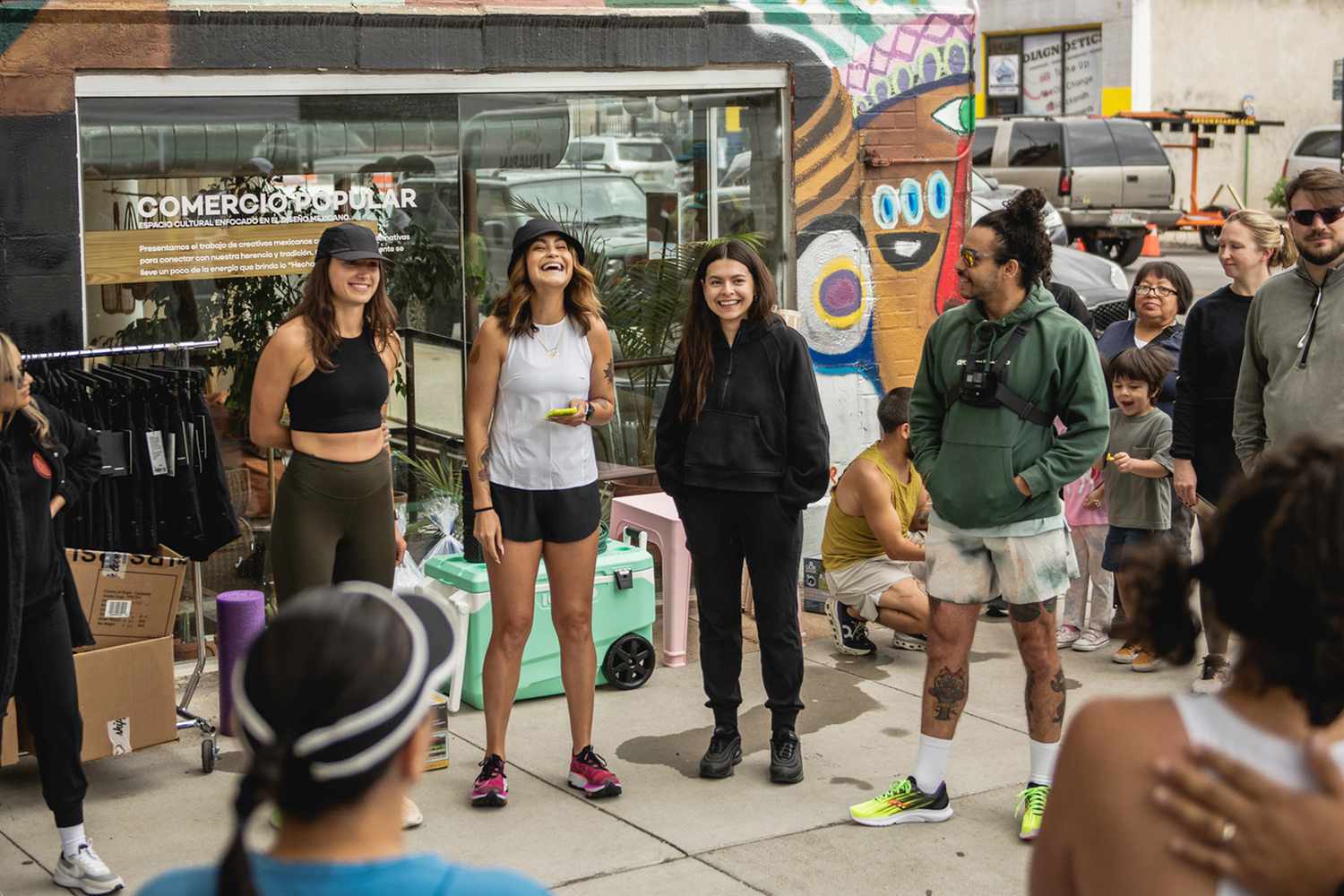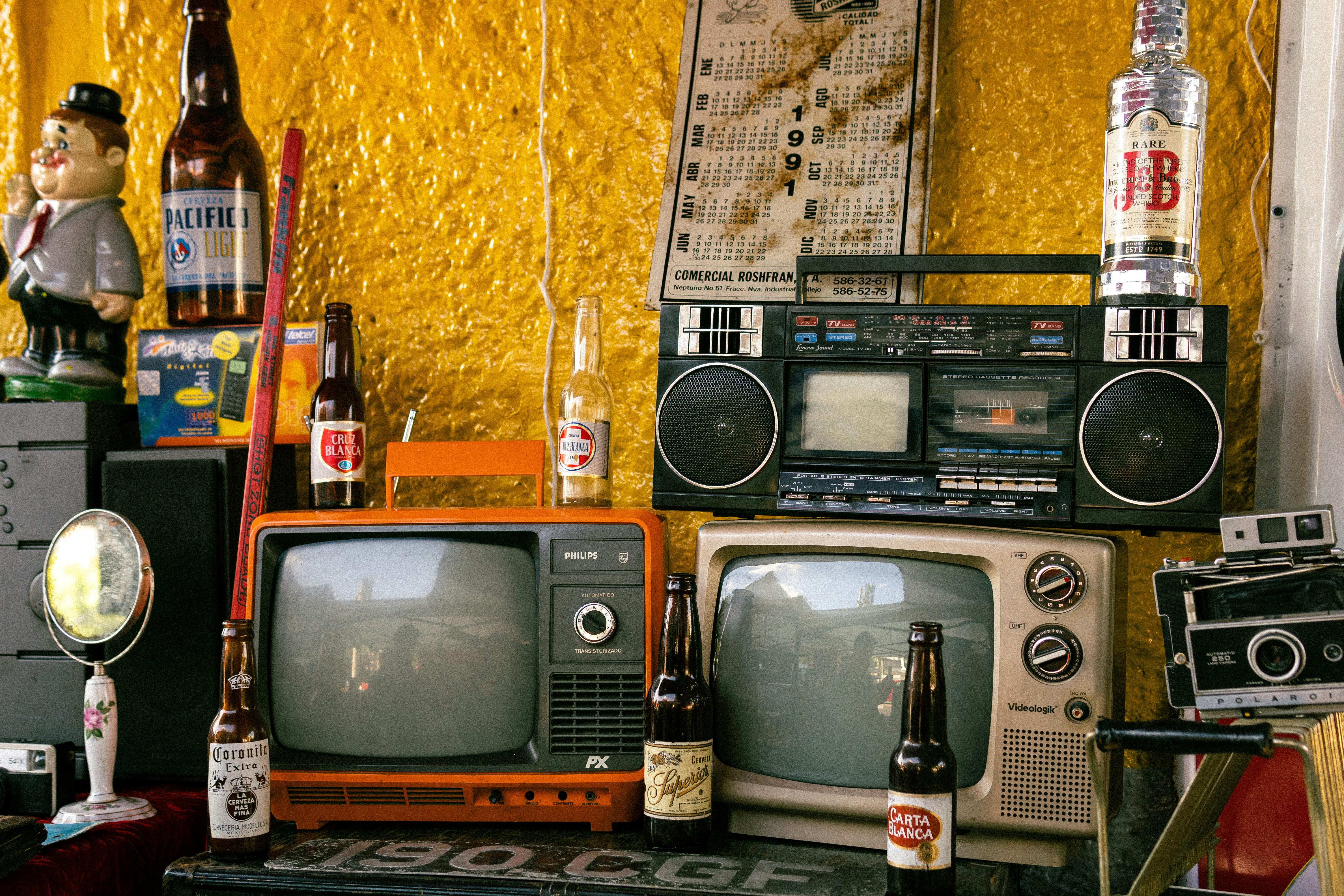Come il Grocery Run Club sta migliorando l'accessibilità alimentare a Chicago.

In modo ironico, il Grocery Run Club non è nato come un vero e proprio club di corsa. Ci sono voluti più di un anno per adottare tale obiettivo. Infatti, questa organizzazione no-profit con sede a Chicago è stata fondata dai migliori amici Lucy Angel Camarena e Jorge Saldarriaga per affrontare la scarsità alimentare nei quartieri disagiati della città.
Durante i primi mesi della pandemia di coronavirus, gli acquirenti hanno sperimentato ansia per le carenze alimentari e le interruzioni della catena di approvvigionamento che hanno portato a scaffali vuoti e opzioni limitate nei negozi di alimentari. Infatti, l'insicurezza alimentare - una mancanza di accesso costante a una quantità sufficiente di cibo per una vita attiva e sana, come definito dal Dipartimento dell'Agricoltura degli Stati Uniti - è aumentata del 100% complessivamente da febbraio 2020 a maggio 2020 e triplicata tra le famiglie con bambini, secondo uno studio dell'Università Northwestern.
Sentendosi impotenti per la mancanza di frutta e verdura fresche e dei beni di prima necessità, Camarena e Saldarriaga hanno iniziato a fare volontariato in un giardino comunitario per preparare scatole di distribuzione di prodotti nel quartiere North Lawndale di Chicago. "Abbiamo notato che molto di ciò che era necessario, specialmente nelle comunità di colore, era l'accesso al cibo", spiega Camarena. Anche la ricerca lo conferma: anche prima della pandemia, i nuclei familiari ispanici o neri negli Stati Uniti avevano tassi di insicurezza alimentare rispettivamente del 15,8 % e del 19,3 % - sproporzionatamente più alti dell'8,1 % tra i nuclei familiari bianchi. Nel quartiere di North Lawndale, nello specifico, il negozio di alimentari più vicino non è nemmeno nel quartiere, fa notare Camarena.
In un weekend, la fonte abituale di cibo non prodotto e beni di prima necessità del giardino comunitario è venuta meno. Non scoraggiati, Camarena e Saldarriaga hanno chiesto ai loro amici di inviare cinque dollari tramite Venmo, in modo che la coppia potesse fare un giro al negozio per raccogliere forniture per la distribuzione alla comunità. È stato allora che si è accesa la lampadina.
"[Abbiamo pensato,] 'Questo è così ingiusto per noi dover fare affidamento su un'entità più grande [per distribuire cibo e risorse]", ricorda Camarena. "Cosa possiamo fare? Come potremmo essere questo tramite per colmare il divario tra le organizzazioni che erano sul campo [che lottavano contro l'insicurezza alimentare] e gli amici che volevano aiutare?"
Sulla base di questa premessa, il Grocery Run Club è stato lanciato ufficialmente nel luglio 2020 con l'obiettivo 'di creare un flusso continuo di fondi per poter sempre sostenere altre organizzazioni no-profit e comunitarie', spiega Saldarriaga. 'Uno dei più grandi problemi [affrontati dalle organizzazioni no-profit] è l'accesso ai finanziamenti'. Il Grocery Run Club organizza e mobilizza individui e aziende che possono donare tempo, denaro e competenze per migliorare l'accesso al cibo raccogliendo fondi, reclutando volontari e facendo la spesa. In questo modo, le organizzazioni più grandi con cui il Grocery Run Club collabora possono concentrarsi sulle attività operative e sugli sforzi sul campo.
Anche se la coppia sapeva che il Grocery Run Club aveva il potenziale per avere un impatto su centinaia di cittadini di Chicago, 'non pensavamo di aver creato una realtà no-profit quando l'abbiamo lanciato', ammette Saldarriaga. 'Abbiamo semplicemente ricevuto una quantità incredibile di supporto'. Tra cui, nell'estate del 2021, una proposta di partnership da parte di Lululemon.
Con il tempo, il Grocery Run Club era pronto ad evolversi per incarnare appieno il proprio nome. "Dopo il primo anno, in occasione del Global Running Day, Lululemon ci ha chiesto se avevamo pensato di creare un club di corsa', racconta Saldarriaga. 'Avevamo già valutato l'idea a causa del nostro nome.'
Accettare l'offerta della nota azienda di abbigliamento sportivo è stato facile, dice. Spesso c'è una complessa rete che lega l'accesso al cibo, le necessità quotidiane e la salute e il benessere, sottolinea. 'Se si nota una mancanza di investimenti nell'accesso al cibo, è probabile che si notino abitudini poco salutari' (pensiamo: fare esercizio fisico regolarmente) nelle stesse demografie e nei quartieri, afferma Saldarriaga. '[Quando Lululemon ci ha contattato], ha iniziato a avere senso collaborare con un club di corsa'. Così è nato il GRC Run Club, il ramo orientato alla corsa del Grocery Run Club.
I fondatori del GRC Run Club hanno arruolato gli amici Crystal Rosales e Marina Holter come leader di corsa, utilizzando 'tutti i volti e tutti i ritmi' come loro motto. Due volte al mese, il GRC Run Club si incontra in un piccolo business di proprietà di BIPOC o di donne, come un negozio di soft-serve artigianale di proprietà di latinos o un bar di caffè brasiliano. Dopo aver salutato tutti con abbracci e high-five, il gruppo parte per una corsa di tre o cinque miglia circa, assicurandosi che nessuno corra da solo o resti indietro. 'Dopo, abbiamo un momento di comunità', spiega Saldarriaga. 'Aspettiamo che tutti finiscano, applaudiamo tutti e stiamo insieme' gustando degli snack offerti dall'azienda locale, grazie alla collaborazione con Lululemon. (Fa notare che il GRC Run Club è il primo equipaggio di corsa con cui Lululemon ha stretto una partnership in Illinois e il primo equipaggio a guida latinos negli Stati Uniti sponsorizzato da Lululemon).
\nWhile the run crew might seem separate from the food access work Grocery Run Club already does, Saldarriaga and Camarena view them as complementary solutions to making health more accessible.'[The run club] was another platform for us to bring awareness to the nonprofit organization, another outlet for us to bring that to the forefront and get miles with our people and our community,' says Saldarriaga. 'Post-run is when we're able to answer questions and talk about what's coming up [for the nonprofit].' By leveraging both the run club and the nonprofit, the co-founders are better able to amplify the efforts of each. For example, the crew recently hosted a run and community clean-up at their original North Lawndale garden, where they planted the first fruits and veggies of the season. 'We ran, we cleaned up, we gardened, and that was really great,' he recalls. 'We're working on bringing those two entities together little by little.'
Plus, the pair points out that simply having a Latinx-led run crew in the first place is helping increase accessibility to wellness, especially in communities of color. 'We host our runs around underserved and underprivileged communities, and people come out and are clapping us on when they see us,' says Saldarriaga. 'There are so many run clubs on the North Side [of Chicago]. But on the South Side, when you see a whole run club that's predominantly Latino and Black with an eclectic, diverse group of people — that brings attention in and of itself. It's that visual access of seeing people that look like you, that you might not see [running] all the time.'
For many people, an approachable neighborhood run club is the first step on their health and wellness journey. 'GRC Run Club is always visiting new Chicago neighborhoods,' says Rosales. 'Some of those neighborhoods may not experience movement or wellness that often. This is why we always want to help support those who live and move in those areas and also introduce wellness to those who may be interested and don't know where to start.'
Since running is one of the more accessible forms of movement, it's especially well-suited to Grocery Run Club's mission. 'Running is for everyone,' adds Camarena. '[It's one of the] activities we can all do to be healthier. Yes, [Grocery Run Club] provides food and everyday necessities, but we want to change the trajectory of people's lives through education on a healthier lifestyle — and so much of that has to do with access.'
In the two years that Grocery Run Club has existed, they've grown from two 'rogue plots of land,' as Camarena puts it, to a full-fledged garden built at the hands of a design team, an urban farmer, and a professional crop plan. 'It was the first time some people have seen [food actually growing],' says Camarena. 'Children in the [North Lawndale] neighborhood are able to come and see things grow — I watched a 10-year-old eat a tomato for the first time.' For that community to have a neighborhood garden helps change the pattern of how its residents eat, giving them the resources necessary to better prioritize their health and wellness.
GRC Run Club also regularly hosts community give-back runs. 'Last year's Dia De Los Muertos run was [an a-ha] moment for me,' says Rosales. 'For every four runners that ran with us, GRC was going to sponsor a week's worth of groceries for a family [in Pilsen, an underserved neighborhood on Chicago's South Side]. I was blown away when we had close to 100 runners show up to run through the Pilsen streets with us and help these families. It really reminded me that this was bigger than just running,' she adds.
And as proud Chicagoans, Camarena and Saldarriaga are committed to long-term grassroots organization. 'When Lucy and I started [Grocery Run Club], we were committed to this not being a Covid-only initiative,' says Saldarriaga. 'We're born and raised Chicagoans, and we're committed to making Chicago better' beyond the pandemic.
This long-term approach to community change is also reflected in the mission of the GRC Run Club. 'Change doesn't come overnight, it comes with commitment and longevity,' he points out. 'That speaks to running too, right? A commitment to miles, a commitment to training… there's a lot more to do, a lot more people to impact, a lot more projects we were to share out. We're going to show up for our communities for a long time, so people can see that we're committed to developing and helping each other out.'
Similarly, they hope that GRC Run Club can carve a path for other run crews and health-related nonprofits led by people of color. 'We don't want to be the only [sponsored, Latino-led run club in the U.S.],' says Camarena. 'So how is what we're doing with GRC Run Club empowering people to go for it? Let's pave the way a little bit so that everyone follows along and we build a better city.'




